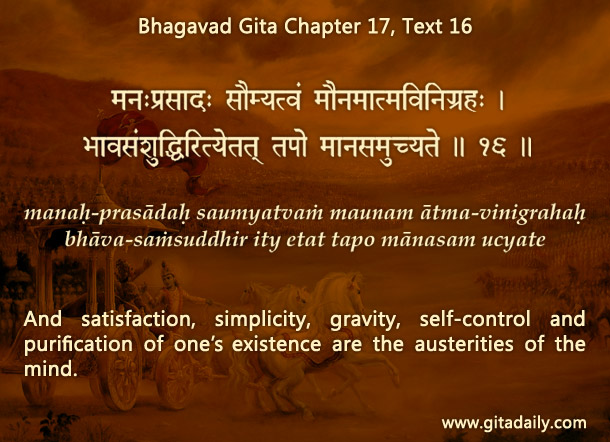Suppose we go to a hotel to eat a full meal and find that the delicacy we wanted is provided only in limited quantity. Our mind may start complaining and prevent us from relishing the meal.
While some meals can be really bad, the universal reality is that the sense objects available to us will always be far lesser than the sense objects unavailable to us. The food items on our plate will rarely be as many as those on the counter or on the menu. And our mind habitually fantasizes about the sense objects we don’t have and faults those that we do have. If we listen to it, we will stay perpetually unhappy.
How, then, can we find happiness? By challenging the premise underlying the mind’s complaining: sense objects are the way to happiness. If we contemplate times when we enjoyed better sense objects, wasn’t even that pleasure finite? Are people who can enjoy the best sense objects at will happy? The wealthiest celebrities often have serious mental health issues — doesn’t that mean they aren’t anywhere as happy as they should be if the sense objects were as enjoyable as our mind imagines them to be?
By such contemplation, we can redirect our efforts from improving the sense objects with us to improving the mind within us. The Bhagavad-gita (17.16) urges us to discipline our mind by choosing to be satisfied with what we have materially and purifying ourselves to relish increasing happiness spiritually.
Gita wisdom explains that the ultimate spiritual reality, Krishna, is the source of all happiness; everything enjoyable manifests a spark of his supreme attractiveness (10.41). When we connect with him by practicing bhakti-yoga, we become purified and relish loving absorption in him, more and more, forever.
Think it over:
- How does our mind keep us perpetually unhappy?
- How can we challenge our mind’s premise about happiness?
- How can we make our mind better?
***
17.16. Satisfaction, simplicity, gravity, self-control and purification of one’s existence are the austerities of the mind.
To know more about this verse, please click on the image
Explanation of article:
Podcast:


Very Beautifully explained
BHAKTI offers most enjoyable sensation